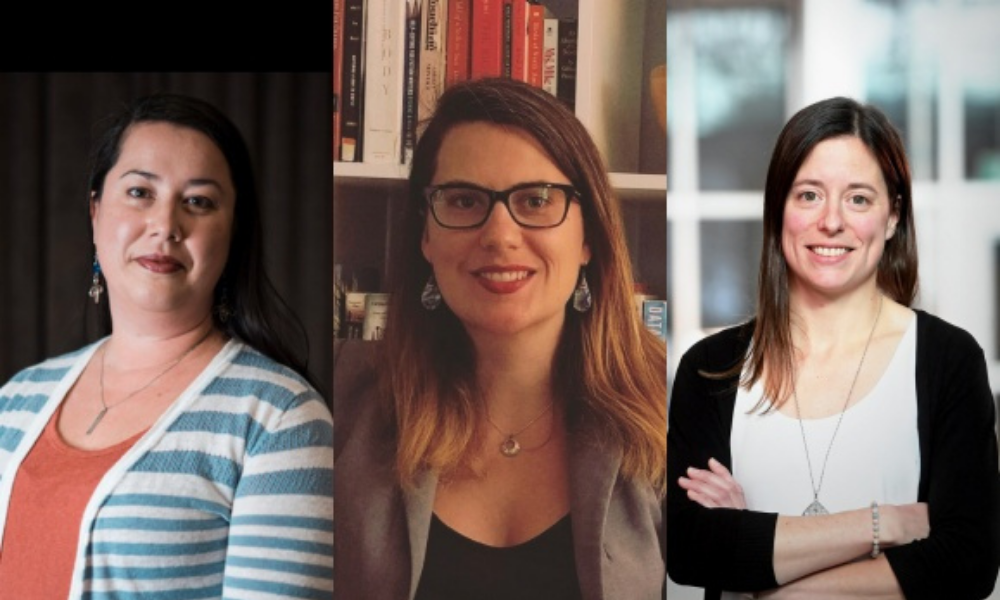New faculty members will teach courses about property, Aboriginal law, law and technology, torts

The Schulich School of Law at Dalhousie University has welcomed Cheryl Simon and Suzie Dunn as assistant professors and Karinne Lantz as an instructor and wished them well in their new roles.
Simon, a Mi'kmaq woman from Epekwitk in Prince Edward Island, joins as an assistant professor teaching property and special issues in Aboriginal law and Indigenous governance. She is experienced in community-based policy development.
In the course of her career, Simon practised law for a brief period, worked as manager of governance advisory services for a national organization, assisted First Nations communities across Canada in developing governance models based on traditional systems, opened her own consulting business, taught courses on identity law at Cape Breton University and worked for Mi'gmawe ’l Tplu'taqnn, an organization focusing on Treaty rights implementation.
Simon obtained her law degree from the University of Victoria and her LLM with a focus on constitutional law from Osgoode Hall law School. She undertook Maori law and comparative Indigenous studies in New Zealand.
“I look forward to sharing Mi'kmaw law and an Indigenous perspective on Canadian law with my students,” said Simon in a news release from Schulich Law.
Dunn, an assistant professor in law and technology for 2021-2022, will be teaching contracts and law and technology in the first semester, then contracts and intellectual property in the second. She will also coach the Harold G. Fox Intellectual Property moot team.
Dunn is a PhD candidate at the University of Ottawa Faculty of Law. While there, she taught contracts law and the law of images as a part-time professor. She was the recipient of the Joseph-Armand Bombardier Scholarship for her research that centred on the intersections of equality, technology and the law, specifically focusing on technology-facilitated violence, deepfakes and impersonation in digital spaces.
Dunn said that she looked forward to working with the law and technology faculty and students at Schulich Law. “Nova Scotia has a rich legal history in addressing technology-facilitated harms, and I hope to contribute to that work during my time here,” Dunn said in the news release.
Lantz, an instructor for 2021-2022 as well as a PhD student at the law school, will be teaching torts, civil procedure and international human rights law. She has worked as an assistant professor at the University of Saskatchewan’s College of Law, as a labour and employment lawyer in Toronto and as a labour relations officer for a faculty association in Saskatchewan.
Her research focuses generally on public international law and particularly on the ways that international law can be used to tackle existing and emerging challenges. As for her ongoing doctoral research, it addresses the domestic and international dimensions of the international human right to health and the ways that international law can assist in implementing and securing the right to health for vulnerable populations in Canada and beyond.
Lantz earned her JD and MA in international affairs via a joint program at the University of Ottawa Faculty of Law and at Carleton University’s Norman Paterson School of International Affairs and her LLM in international law from the University of Cambridge.
“I still remember clearly my days as a 1L, and I think part of my role is to help students get used to law school and to set a firm foundation for their years in law school to come,” said Lantz in the news release.










